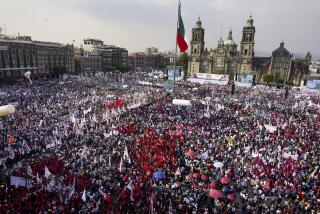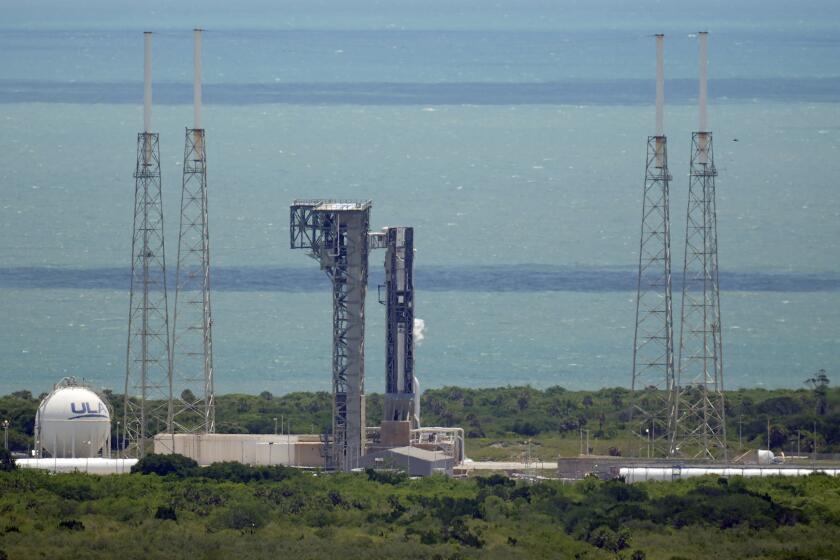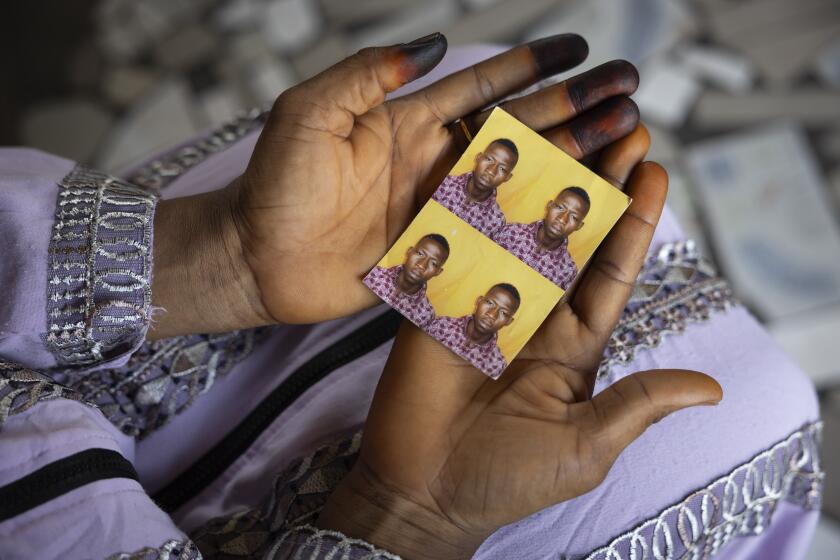Lifeline at the bridge of despair
The woman was still wearing her kitchen apron when Chen Si spotted her on the other side of the Nanjing Bridge.
By the time Chen raced across four lanes of screaming traffic that recent Sunday morning, the woman had already started climbing the narrow railing separating her from the surging waters below.
“After I yanked her back, all she did was cry,” said Chen, who is all too familiar with such scenes: The burly 39-year-old has spent practically every weekend of the last four years patrolling this stretch of roadway above the mighty Yangtze River, looking for signs of human despair.
Chen is a self-appointed lifeguard on the so-called Chinese bridge of death. His record so far, he says: 144 lives saved.
Not bad for a one-man crusade. But it hardly makes a dent in the suicide epidemic sweeping this land of mind-numbing change, where the social safety net of the early communist era has given way to the stress of a market-driven economy. By official estimates, as many as 280,000 Chinese kill themselves each year, twice the rate in the United States.
“The actual number is probably much more shocking,” said Zhu Wenbo, who runs a counseling center in central China’s Sichuan province, citing inadequate resources to track the problem and an unwillingness among victims’ families to face the stigma. “A lot of people suffer in silence and never seek help.”
Here in this ancient capital, everyone knows the Nanjing Bridge and why it is more than just a scenic spot.
Since it opened nearly 40 years ago as a symbol of Chinese communist might, an estimated 1,000 people have killed themselves by leaping from the span. These days, the vintage crossing, with its flag-topped towers and statues of proletariat heroes, is viewed by many as more of a monumental tombstone than the engineering marvel it once was.
“I look for people filled with a sense of gloom and doom,” Chen said as he scanned the blur of cars and trucks humming over the bridge, squinting through his binoculars for people apparently preparing to commit suicide.
He remembers the day suicide became more than just a statistic for him.
It was 2003. Chen, originally from the countryside, was barely scraping by hawking farm vegetables in a city with few friendly faces. Whenever he was down, an elderly neighbor would give him the pat on the back he needed. Then the seemingly upbeat grandfather starved himself to death, apparently because he was tired of a nasty family squabble over who should care for him.
“It was a shock to me,” Chen said. “I thought to myself, ‘Why didn’t I go visit him, talk to him?’ Maybe I could have saved his life.”
The feeling of guilt became his motivation.
On a sweltering summer day in 2004, he made his debut on the Nanjing Bridge. He spotted a man who had thrown his shoes in the river and already had one leg over the railing.
“I grabbed him by the waist, he hardly fought back,” Chen said. “I pressed him to the ground. He started to cry.”
The man was a farmer who had come to the city with his entire wheat harvest. But a business partner had fled with all the proceeds, and the man felt he couldn’t go home and face his family and children. So he used the last change in his pocket for a bottle of liquor to numb himself for the big fall.
After talking the man out of ending his life, Chen gave him some money to go home.
“In a time of crisis, all people really need is one person willing to lend a hand,” Chen said. “It could make the difference between life and death.”
Not all his efforts have been welcomed, at least initially.
“I told him to go away, it’s none of your business,” said Shi Xiqing, recalling the day Chen saved his life. Shi, 43, who collects recyclables for a living, was deep in debt after borrowing $15,000 to pay for his teenage daughter’s leukemia treatment. When he couldn’t make the loan payments, the debt collectors grew abusive, even chasing him down the street and slapping him in front of his friends.
“I couldn’t handle it anymore,” said Shi, now a close friend of his savior. “I went to the bridge because it’s convenient -- a few seconds, it’ll all be over.”
Most people Chen helps don’t want to stay in touch. But Shi was different. He liked how Chen would never say no to handing over yet another small loan to tide him over, or to taking him out to a local dive for the occasional bottle of cheap liquor. Chen never tired of telling him that everything was going to be OK.
“This bridge needs people like him,” Shi said. “Without him, I would not be here today.”
Since taking on his lonely quest, Chen has seen a broad spectrum of pain, some close calls -- and worse. Since he first stood on the bridge, he said, he has seen as many as 50 people drown in the river. “Some just stop the car suddenly and jump,” he said. “The bridge is about 700 meters long. There is no way I can catch up to them. I used to feel hopeless, like it was all my fault.”
But whenever he felt despair, he would try to remember the lives he had saved.
There was the young woman staring at the waters with tears in her eyes. When she noticed Chen watching her, she started running as if to shake him off. Then suddenly she tried to jump.
“By the time I reached her, I only got hold of her right leg. One of her shoes fell into the water,” Chen recalled. Slowly the woman told him about an abusive husband who had left her and their 3-month-old baby. She had no education, no job and didn’t know how to support her child. If she died, she thought, at least her husband would come back for the baby.
“She got on her knees and said, ‘I want to die, please don’t waste any more time on me,’ ” Chen recalled.
Of course he didn’t listen. He even managed to track down the husband, who was out of town with a mistress. Chen made him come and meet his wife. When he arrived, the arrogant husband threw a cigarette in his face. Chen swallowed the insult.
“I told him, ‘I am her brother now. If you ever hurt her again, I am not going to let you get away with it.’ ”
The couple left, and Chen hasn’t heard from them again.
Then there was the millionaire with the expensive villas, fancy cars and mistresses. He had lost everything in a construction deal gone sour.
“He was a big guy, and I was on my knees trying to pull him to safety,” Chen said. “I told him, ‘Brother, let’s go have a drink and talk.’ When the bill came, he pulled up his pant leg and there was a wad of cash still stuffed in his sock.”
There was the spoiled only child who couldn’t handle even a small setback.
“This college junior wanted to kill himself because his family lost its fishing harvest during a flood and they had to borrow money to keep him in school,” Chen recalled. “He could no longer afford to take his girlfriend out on a date, and she dumped him.”
As for the woman in the apron, she finally told Chen that her husband had walked out on her soon after the birth of their daughter. For a time, she managed to raise the child on her own, selling steamed rice on the sidewalk. But because she couldn’t afford a legal permit, officials confiscated her stall.
Unsure how she would survive, she locked her 6-year-old daughter in their tiny apartment and called her parents to fetch the child, telling them she was going away on a long trip. Then she headed for the bridge.
When Chen rushed to the apartment with the woman, he found the girl tied to the bed with a long cloth to prevent her from running away.
“I could tell she had been crying a long time,” he said. “On a table nearby her mother had left some steamed bread so she could eat for at least a few days.”
Sometimes saving lives is the easy part for Chen. Coming up with reasons for them to keep on living can be harder.
“I always have to tell them there is nothing I can’t solve,” Chen said. “It’s a lie. Yet I have to keep on telling the lie, to make them think things will get better.”
Recently, he started writing a blog called the Big Bridge Diaries so he can share his encounters and get people to help, with both time and donations. But aside from occasional volunteers, he usually is a lone lookout. One recent weekend on the blog, he reported that in the previous week, two men had killed themselves on the bridge, one Wednesday night, and another Saturday morning before he arrived.
When he is not on the bridge, he works as a manager at a shipping company, earning less than $300 a month. He gives much of it to the people he saves, which has strained family finances and his relationship with his wife and daughter, who hardly see him.
“They wish I would devote more time to the family and worry less about things I can’t control,” he said.
But every time he thinks about walking away from the bridge, he goes back. He can’t stand the thought of hearing of a suicide he might have stopped.
--
More to Read
More to Read
More to Read
Start your day right
Sign up for Essential California for news, features and recommendations from the L.A. Times and beyond in your inbox six days a week.
You may occasionally receive promotional content from the Los Angeles Times.






